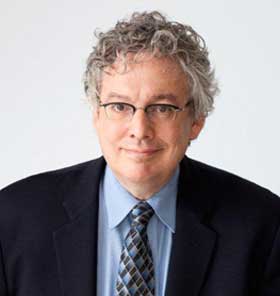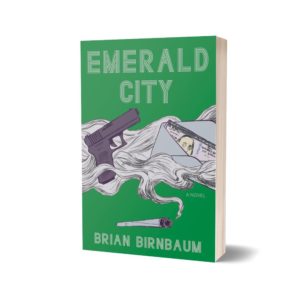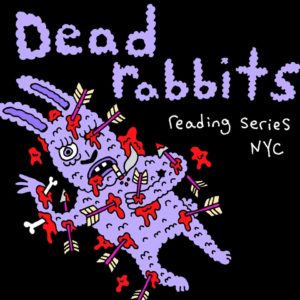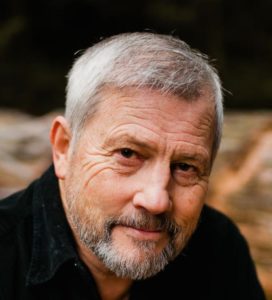Stanley Flink: Due Diligence and the News
February 25, 2020 by David
Filed under Non-Fiction, WritersCast
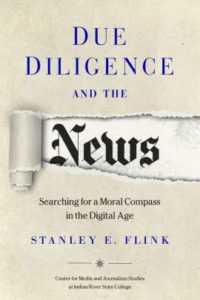 Due Diligence and the News: Searching for a Moral Compass in the Digital Age – Stanley Flink – Center for Media and Journalism Studies at Indian River State College – paperback – 978-0-578-60291-2 – 214 pages – $19.95 – 12/7/2019 – ebook editions available at lower prices.
Due Diligence and the News: Searching for a Moral Compass in the Digital Age – Stanley Flink – Center for Media and Journalism Studies at Indian River State College – paperback – 978-0-578-60291-2 – 214 pages – $19.95 – 12/7/2019 – ebook editions available at lower prices.
I was recently introduced to Stan Flink by a mutual friend. I’d known of him for many years as he was a Yalie of some renown, a journalist for many years who later became the editor of the Yale Alumni Magazine and taught journalism at Yale and at other institutions of higher learning.
With his long experience, as a reporter, editor and lecturer, Stan knows and understands the importance of the news media to the functioning of American democracy. Still active at 95 years of age, Stan has worked as a journalist and editor for many years, in many different venues and platforms.
Flink recognizes that democracy has no life without truth. In fact, democracy is predicated on there being an educated and active citizenry, that tries to know as much as possible the truth and nature of events and human affairs. In Due Diligence and the News, Stan reviews, succinctly and gracefully, the relationship between the press and American civic life from colonial days to the digital age. In a series of interlocked essays, he demonstrates succinctly and clearly that while opinions may differ, facts are not optional. He discusses the important question of how it can be possible to assure publication based on verifiable facts without curtailing differing opinions. This is a central issue for us all to face – understanding and resolving the difference between fact and opinion. We need both elements to have equal weight in our political discourse, and we cannot dismiss either.
Some of the questions he raises include:
How can the media restore the trust of the reading/listening public?
Is it ever possible for the news media to create mechanisms, like the Hutchins Commission, that can make workable rules of self-governance and professional standards for itself?
Can government—international, national, state or local—serve as a watchdog on the media without violating the Constitution?
Can the news media, assuming it is truthful, do less than full due diligence in commenting on a public official?
These questions are addressed thoughtfully throughout this well-written book, but no one, not even Stan, can answer them conclusively and for all situations. Ultimately, as Stan takes a look forward into the digital age, the age of learned intelligence, he poses what may be as yet unanswerable questions about the future of the press in our fast-changing society. I think we have alot to learn from this book and the questions that Stan provides are ones we should be discussing far and wide as we try to heighten the importance of truth among our fellow citizens.
STANLEY FLINK grew up in a New Jersey. He entered Yale University a few months after Pearl Harbor and soon after enlisted in the Army. After service in the Pacific, he returned to Yale to continue his education. He graduated in 1948 and became a correspondent for Time, Inc. in New York and then in California, where he reported on such people as William Randolph Hearst, Richard Nixon, and the first appearances of Marilyn Monroe.
In 1958 he transferred to television news at NBC and later CBS. In 1962 he took up a series of assignments in London where he lived for eight years. In 1972 he returned to Yale to become the founding director of the Office of Public Information. From 1980 to 2010 he taught an undergraduate seminar called “Ethics and the Media.” In 1994 he was awarded the Yale Medal.
Stanley Flink is the author of many articles and profiles, and among his books are a novel called But Will They Get It In Des Moines? about television, published by Simon & Schuster; and Sentinel Under Siege, an historical analysis of freedom of the press in America, published by Harper Collins.
Mr. Flink and his second wife (of 45 years) Joy, live in a retirement community in North Branford, Connecticut, where he still lectures on the media. Through it all, he has never lost his deep affection for golden retrievers. He celebrated his 95th birthday in May, 2019.
Watch this video of Stan talking about the ethics of journalism here.
Support independent bookselling by buying the book online from our friends at R.J. Julia Booksellers.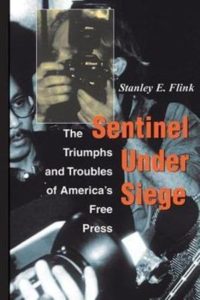
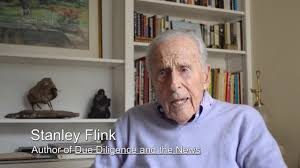
Podcast: Play in new window | Download
Fuchsia Dunlop: The Food of Sichuan
February 12, 2020 by David
Filed under Non-Fiction, WritersCast
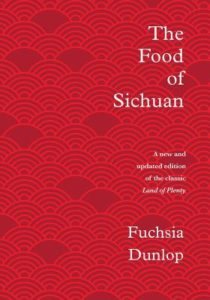 The Food of Sichuan (A New and Updated edition of Land of Plenty)- Fuchsia Dunlop – Hardcover – 978-1-324-00483-7 – 480 pages – W.W. Norton – October 15, 2019 – $40.00 – ebook versions available at lower prices.
The Food of Sichuan (A New and Updated edition of Land of Plenty)- Fuchsia Dunlop – Hardcover – 978-1-324-00483-7 – 480 pages – W.W. Norton – October 15, 2019 – $40.00 – ebook versions available at lower prices.
I love cooking and I particularly love cooking Chinese cuisine, and among Chinese cuisines, my favorite has always been Sichuanese. I am by no means an expert chef, but as an educated and somewhat experienced eater and cook, books like The Food of Sichuan are wonderful for me to read and learn from. Now having spent some time with the recipes, I can attest that this is a spectacular book for anyone interested in becoming a better cook of any form of Chinese cuisine.
Fuchsia’s writing about traditional Sichuan cookery is illuminating, and her knowledge and awareness the issues facing western cooks make this book a pleasure to work with. And it is a beautifully produced book – so much so that I have had to be extremely careful as I cooked from it, as I did not want to splash soy sauce or hoisin on any of the pages of the book.
Nearly twenty years ago, Fuchsia’s first book, Land of Plenty, was viewed by many to be one of the greatest cookbooks of all time. In this new book, Dunlop returns to the region where her own culinary journey began, adding more than 70 new recipes to the original selection and adding new writing as well.
The Food of Sichuan offers home cooks the tools needed to make a broad range of Sichuan dishes, ranging from the simple to the complex. The book includes beautifully reproduced food and travel photography, as well as Dunlop’s extensive writing about the culinary and cultural history of Sichuan, home of one of the great cuisines of the world.
Fuchsia Dunlop is a cook and food-writer specializing in Chinese cuisine. She is the author of the award-winning Land of Fish and Rice: Recipes from the Culinary Heart of China (a collection of recipes from the Jiangnan or Lower Yangtze Region in eastern China), Every Grain of Rice: Simple Chinese Home Cooking; Shark’s Fin and Sichuan Pepper: A Sweet-Sour Memoir of Eating in China, an account of her adventures in exploring Chinese food culture; and two other now well-known books of Chinese cooking, Revolutionary Chinese Cookbook, and of course, the aforementioned Land of Plenty.
Fuchsia’s writing has appeared in many publications including Lucky Peach, Saveur, The New Yorker, and Gourmet. In the US, she has won four James Beard awards and was named ‘Food Journalist of the Year’ by the British Guild of Food Writers (GFW) in 2006. Shark’s Fin and Sichuan Pepper won the IACP Jane Grigson Award in the US, and the GFW Kate Whiteman Award for Food and Travel in the UK. Most recently, Land of Fish and Rice won the 2017 Andre Simon Food Book of the Year award.
She is a restaurant consultant in London, and has also consulted and taught Chinese cookery for companies including Williams Sonoma and Marks and Spencer. Dunlop has spoken and cooked at conferences and events in China, Barcelona, California, New York, Sydney and Singapore, and as part of the Transart festival in Bolzano, Italy.
Fuchsia Dunlop grew up in Oxford, England, and studied at Magdalene College, Cambridge University, Sichuan University, and the School of Oriental and African Studies in London. She speaks, reads and writes Chinese.
‘The best writer in the West… on Chinese food’ — Sunday Telegraph
‘Fuchsia Dunlop joins the ranks of literary food writers such as Elizabeth David and Claudia Roden.’ — Independent
‘A world authority on Chinese cooking… Her approach is a happy mixture of scholarly and gluttonous.’ — Observer Food Monthly
Support independent bookselling – purchase The Food of Sichuan from RJ Julia Booksellers in Madison, Connecticut, they will send the book to you promptly.
Visit the author’s excellent and comprehensive website here.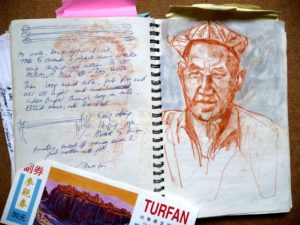
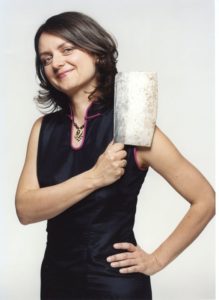
Podcast: Play in new window | Download
Kevin Baker: The Fall of a Great American City: New York and the Urban Crisis of Affluence
January 28, 2020 by David
Filed under Non-Fiction, WritersCast
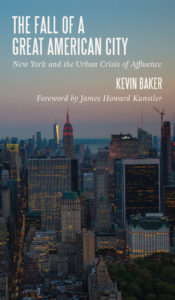 The Fall of a Great American City: New York and the Urban Crisis of Affluence – Kevin Baker (foreword by James Howard Kunstler) – 9781947951143 – City Point Press/Harper’s Magazine – Hardcover – 176 pages – October 8, 2019 – eBook editions available at lower prices.
The Fall of a Great American City: New York and the Urban Crisis of Affluence – Kevin Baker (foreword by James Howard Kunstler) – 9781947951143 – City Point Press/Harper’s Magazine – Hardcover – 176 pages – October 8, 2019 – eBook editions available at lower prices.
Kevin Baker has been one of my favorite writers for many years. He authored a wonderful baseball novel, Sometimes You See It Coming, based loosely on the life of Ty Cobb, but set in the modern day. I have read that book at least twice. Later, I was fortunate to work with Kevin on a project for the History Channel, and I have long appreciated his nonfiction history writing as well. When I read his essay in the July, 2018 issue of Harper’s Magazine, where Kevin often publishes on current affairs, called The Death of a Once Great City, I felt strongly that this story needed to be read as widely as possible. Kevin’s perceptive observations about New York City and its modern real estate-based problems, resonated with my own experience of the direction that modern American culture is moving. His piece seemed to me important enough to be made into a book.
Harper’s John MacArthur and Lynn Carlson agreed with my thinking, and together with Kevin, we worked out an arrangement for publication of an expanded and enhanced version of Kevin’s original essay to be published in book form by my imprint, City Point Press. I am very pleased to have been able to work with Kevin and Harper’s on what is now called The Fall of a Great American City: New York and the Urban Crisis of Affluence.
This is the story of what is happening today in New York City and in many other cities across America. It is about how the crisis of affluence is now driving out everything we love most about cities: small shops, decent restaurants, public space, street life, affordable apartments, responsive government, beauty, idiosyncrasy, each other. This is the story of how we came to lose so much—how the places we love most were turned over to land bankers, billionaires, the worst people in the world, and criminal landlords—and how we can – and must – begin to take them back.
I think this is an important story and hope my listeners will agree. I do not usually talk to writers about books I have published myself for Writerscast, as I do not want this podcast to be about the books I publish rather than the books I read. But in this case, since I came to this book through the original essay that I did read, I think it is meaningful to present my conversation with Kevin for your listening enjoyment.
Kevin is a terrific writer, and this book presents a strong case for rethinking our approach to modern urban life. New York, San Francisco, Los Angeles, Chicago, Boston, and many other cities are all suffering through the same sorts of real estate crises. I was not alone in being moved by Kevin’s piece in Harper’s – the magazine has reported that the original essay was one of the most read of all pieces it has ever published and has “gone viral” online to reach a vast audience.
This story affects us all and challenges us to rethink how we approach the public good.
Kevin Baker grew up in Rockport, Massachusetts, graduated from Columbia University in New York City in 1980, and since then has earned his living as a writer and editor. Dreamland, part of Baker’s New York‚ City of Fire trilogy was published in 1999, Paradise Alley issued in 2002, and the third and final volume of the trilogy, Strivers Row, was published in 2006. Kevin was the chief historical researcher on Harold Evans’ best–selling history, The American Century, published in 1999. He wrote the monthly “In the News” column for American Heritage magazine from 1998-2007, and has been published in the New York Times, the New Republic, Politico.com, New York magazine, the Washington Post, the Chicago Tribune, the Los Angeles Times, and of course, Harper’s magazine, among other publications. He is a 2017 Guggenheim Fellow for nonfiction. Kevin is married and lives in New York City.
You can purchase books featured on Writerscast from indie bookseller, RJ Julia. Buy The Fall of a Great American City here.
Visit Kevin Baker’s website here.
Visit City Point Press here.
Podcast: Play in new window | Download
Christina Thompson: Sea People: The Puzzle of Polynesia
January 14, 2020 by David
Filed under Non-Fiction, WritersCast
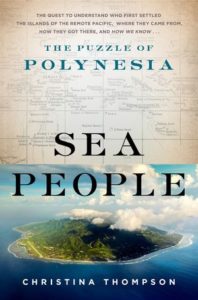 Sea People: The Puzzle of Polynesia – Christina Thompson – 9780062060877 – Harper – Hardcover – 384 pages – $29.99 – March 12, 2019 – ebook editions also available at lower prices, varying by outlet.
Sea People: The Puzzle of Polynesia – Christina Thompson – 9780062060877 – Harper – Hardcover – 384 pages – $29.99 – March 12, 2019 – ebook editions also available at lower prices, varying by outlet.
“I loved this book. I found Sea People the most intelligent, empathic, engaging, wide-ranging, informative, and authoritative treatment of Polynesian mysteries that I have ever read. Christina Thompson’s gorgeous writing arises from a deep well of research and succeeds in conjuring a lost world.”
– Dava Sobel, bestselling author of Longitude and The Glass Universe
I completely agree with Dava Sobel. This is an incredible book, probably the best introduction to the ancient and modern world of the Polynesian people of the Pacific islands you could ever read. She starts with an anecdote of modern Polynesia that aptly sets the scene for the entire story. Thompson is married to a Maori (her first book, Come on Shore and We Will Kill and Eat You, tells the history of the Maori people of New Zealand, who are among the many groups of Polynesians). When she and her husband are in Hawaii about to rent a kayak, the Hawaiian managing the concession tells them it rents for “thirty dollars….but twenty for you, brother.” It’s a striking moment, giving Thompson the opportunity to explain the entire outline and genesis of the book. Polynesians all over the Pacific from New Zealand to Hawaii to the Easter Islands are related to one another. They all instantly recognize the cultural connection, and while many of the lifeways and life skills that existed hundreds or a thousand years ago have disappeared, and European and Asian influences have spread throughout the region, the ocean environment is what it always was. The mystery is, of course, how did the Polynesians navigate the open ocean for over 1000 years to populate the vast majority of the Pacific Ocean? Sea People tells that story brilliantly.
Through the course of this deftly written book, Thompson tells us how the earliest identifiable Polynesians settled this vast region. She explores what was once called the “Problem of Polynesian Origins” that fascinated the thinking of many European scientists during the late nineteenth century and into the modern era, where a variety of theories have competed to explain who the Polynesians are and how they got there (from the east or from the west, for example.)
This book is a comprehensive telling of history, geography, anthropology, and includes a great deal about the science of navigation. It’s a completely engrossing and riveting read, making it one of the more satisfying nonfiction books I have read in a long time.
Christina is a great person to talk to, so knowledgeable and comfortable with her material and never dry or pedantic in her approach to communicating so much of what she knows. It was a pleasure to speak with her for Writerscast.
My interview with Christina Thompson about her (wonderful) previous book, Come on Shore and We Will Kill and Eat You All can be found here on Writerscast, (originally posted in December, 2011.)
Christina’s author website is here.
The book is available for purchase from independent bookseller RJ Julia here.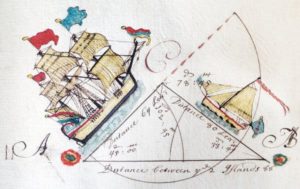
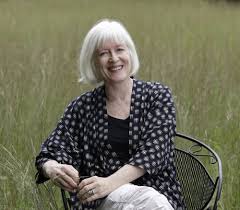
Podcast: Play in new window | Download
Publishing Talks: David Wilk interviews Brian Birnbaum of Dead Rabbits
December 31, 2019 by David
Filed under PublishingTalks, The Future
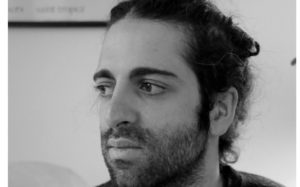 Publishing Talks began as a series of conversations with book industry professionals and others involved in media and technology, mostly talking about the future of publishing, books, and culture. As every media business continues to experience disruption and change, I’ve spent time talking with some of the people involved in our industry about how publishing might evolve as it is affected by technology and the larger context of culture and economics.
Publishing Talks began as a series of conversations with book industry professionals and others involved in media and technology, mostly talking about the future of publishing, books, and culture. As every media business continues to experience disruption and change, I’ve spent time talking with some of the people involved in our industry about how publishing might evolve as it is affected by technology and the larger context of culture and economics.
Some time back, this interview series broadened to include conversations that go beyond the future of publishing. In an effort to document the literary world, I’ve talked with a variety of editors and publishers who have been innovators and leaders in independent publishing in the past and the present, and continue to explore the ebb and flow of writing, books, and publishing in all sorts of forms and formats, as change continues to be the one constant we can count on.
There are many reasons to establish an independent literary venture, but usually the urge is based in the most basic impulse to publish, i.e. make public, work that matters, either to an individual, or a group of writers clustered around a particular geography or literary pursuit. Dead Rabbits is one such new venture. Its founders began by creating a poetry reading in a place that was underserved. The Dead Rabbits Reading Series was founded in 2014 by Devin Kelly (Sarah Lawrence MFA ’15), Katie Longofono (Sarah Lawrence MFA ’14), and Katie Rainey (Sarah Lawrence MFA ’14) as a way of providing a place for an emerging young New York City literary scene to exist and thrive in Upper Manhattan.
Out of that extremely successful undertaking – with a long list of readers with whom I confess I was not familiar – Katie Rainey, Jonathan Lee Kay and Brian Birnbaum subsequently founded Dead Rabbits Books (“Books that Matter”). Their first publication is Brian Birnbaum’s novel, Emerald City, with several more books planned and ambitions to establish a long term self sustaining publishing venture.
I’ve talked to many folks in publishing who have spent years at their work and thought it would be a useful counterpoint to talk to someone new, on the other end of the spectrum, is just beginning the struggle to publish and reach readers in new ways that have continued to emerge over the past few years.
Dead Rabbits is emblematic of a new generation of writers and editors that is in many ways wrestling with the same challenges that have faced every generation before them, but the current environment is also very different than it has been at any time in the past. Social media creates unmatched opportunities for communication and at the same time a vast array of issues for any new enterprise trying to be discovered. It seems there are more poets and independent presses than ever, all competing for an audience of readers for whom poetry is yet another option for consumption alongside every other media form. Which makes this a very interesting time indeed. Good luck to Dead Rabbits, (in all their various literary ventures) – this is a group of young literary adventurers who seem to have some very good ideas as well as access to some very good writing. Anyone interested in the current literary scene should listen to this podcast.
Podcast: Play in new window | Download
Brook Simons: Nothing to Write Home About
December 16, 2019 by David
Filed under Non-Fiction, WritersCast
 Nothing to Write Home About – Brook Simons – 9781626468702 – Booklocker – paperback – 232 pages – $16.95 – April 15, 2014 – ebook available at lower prices
Nothing to Write Home About – Brook Simons – 9781626468702 – Booklocker – paperback – 232 pages – $16.95 – April 15, 2014 – ebook available at lower prices
In her late twenties, in 1977, Brook Simons picked up stakes and moved to Los Angeles from Connecticut, where she grew up on a farm in a small town, which happens to be right next door to where I grew up. While Brook and I did not know each other in Connecticut, she ended up marrying an old friend of mine from Yale, who also moved to LA to start a new life just after Brook did. So while we have never met, I felt a connection to this book from the outset.
Brook’s memoir is one of the bravest and rawest pieces of personal nonfiction I have ever read. I think the word insouciant fits who Brook was during the time of this story, which coincides with the rise of the drug fueled stand up comedians who gathered in Los Angeles around the Comedy Club and television studios of Hollywood in an anxiety and angst ridden explosion of personal exposure. Not all of the funny stuff was really funny, and the mostly male community of comics was pretty solidly male-centered and frankly not only self loathing and self degrading, but extremely misogynistic.
In some ways, brash young Brook fit in with this crew, as her story shows us so evocatively and painfully. She loved the energy, the drugs, and the comedy, but she also became attached to one of the comedians with whom she developed a highly dysfunctional and brutal relationship that ultimately led her to the brink of disaster on many levels.
There really is a lot to write home about here, and Brook writes it well. I don’t want to give away the story in any form. I think you should listen to our conversation and then read the book to understand the story Brook is telling on herself toward showing how danger and power can seduce us, take us beyond the places that are safe, and sometimes cause damage that goes far beyond what anyone should be able to experience. It’s a story that antedates #MeToo, but which ought to be required reading for every woman and man who cares about changing the power relationships between male and female in a positive way.
I was really stunned by this book and hope you will find this interview of interest, along with the book itself. You can buy it from my friends at RJ Julia Booksellers in Madison, Connecticut. Support independent bookselling and order Nothing to Write Home About here.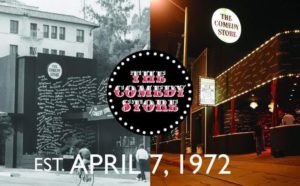
Podcast: Play in new window | Download
Christopher Ingraham: If You Lived Here You’d Be Home By Now
December 3, 2019 by David
Filed under Non-Fiction, WritersCast
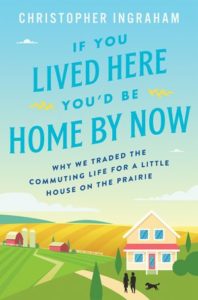 If You Lived Here You’d Be Home By Now: Why We Traded the Commuting Life for a Little House on the Prairie – Christopher Ingraham – 9780062861474 – Harper Collins – Hardcover – 288 pages – $24.99 – September 10, 2019 – ebook version available at lower prices.
If You Lived Here You’d Be Home By Now: Why We Traded the Commuting Life for a Little House on the Prairie – Christopher Ingraham – 9780062861474 – Harper Collins – Hardcover – 288 pages – $24.99 – September 10, 2019 – ebook version available at lower prices.
Despite both having good jobs, Chris Ingraham, a data reporter at the Washington Post, and his wife Briana, an administrator at a Social Security office, were having trouble with the mechanics of raising twin boys in the expensive metro area suburbs. One day, Chris wrote an article that would change his life. It was based on a USDA ranking of America’s 3,000+ counties from ugliest to most scenic. Chris found Red Lake County, Minnesota at the bottom of the list and without thinking about the people who lived there, called it “The absolute worst place to live in America.” In the quiet of an end of summer news cycle, his seemingly innocuous story went viral with a vengeance.
And unsurprisingly, some of the strongest reactions came from residents of Red Lake County. In their “Minnesota Nice” way, they asked him to think outside the numbers, and actually visit their community, and Chris, perhaps against his better judgement, agreed to fly to this isolated area of northwestern Minnesota to see for himself. He was surprised by the people he found there, not just because they were nice, but because the small towns and rural areas of northern Minnesota – miles from the nearest Whole Foods and Starbucks – turned out to be more than nice, but warm, familial and interesting.
But the big twist in the story turns out to be that after realizing how hard it was for them to live happily where they were, Chris and Briana and their kids decided to pick up stakes and move to the same Minnesota community his article had dissed in the first place.
If You Lived Here You’d Be Home by Now is ultimately, then about what happens when you make a momentous life decision that changes your life and challenges everything you think you know about yourselves and your country. In Red Lake County, the Ingraham family experience the travails of small-town gossip, learn how to deal with “real” winters in a place where temperatures commonly reach forty below zero, try to understand new activities like hunting and hockey, and how to relate to nearby neighbors who know everything about your daily comings and goings. But they also learn the joys and pleasures of life in a small community, where what you do can make a huge difference. Ingraham has a great sense of humor and is a natural storyteller. And while not everything that happens to them is either uplifting or transcendent, there is a lot here for all of us to learn about the truths and myths of small town life in America.
Ingraham has the benefit of being able to work remotely for the Washington Post, so he at least does not have to struggle with the difficulty of finding work in a small town, something that is a huge problem for many Americans who do want to stay in their hometowns. And not everyone who chooses to live in small town America is either some sort of hero or a victim of bad judgment; life is much more complex than that. The story of Chris and Briana and their kids making a massive life change is a great reminder, however, that there is so much experience in rural areas that is worthy of celebrating and preserving, before our entire country becomes a giant suburban mall.
“Thank you, Christopher Ingraham for venturing out of the bubble of stereotyping and misunderstanding that often confines American urbanites who never leave the city and smugly judge rural Americans from their leather couches. I love Mr. Ingraham for his open mind and reporter’s grasp of detail and complicated truth. He captures the charm of a small town entertainingly, without sentimentality or the canned platitudes of those who drop in for a day and count themselves expert analysts after lunchtime. Good work!”
– George Hodgman, NY Times bestselling author of Bettyville
I am pleased to announce a new enhancement to Writerscast — all the books we feature are available for purchase from our friends at R.J. Julia Booksellers in Madison, Connecticut.
You can buy a copy of If You Lived Here, You’d Be Home by Now, and know that by doing so, you are supporting independent bookselling. Click on this link to visit the RJ Julia bookstore site.
A fun PBS story about Chris, family, Minnesota and the book is here.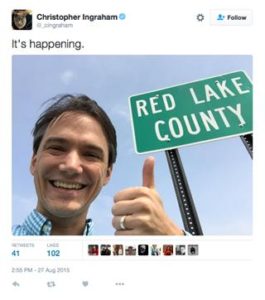
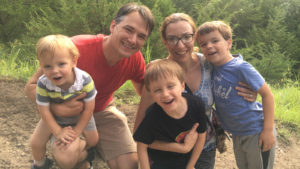
Podcast: Play in new window | Download
Karl Marlantes: Deep River, a Novel
November 19, 2019 by David
Filed under Fiction, WritersCast
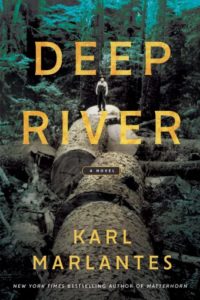 Deep River – Karl Marlantes – 978-0-8021-2538-5 – Atlantic Monthly Press – Hardcover – 736 pages – $30 – July 2, 2019 – ebook version widely available at lower prices.
Deep River – Karl Marlantes – 978-0-8021-2538-5 – Atlantic Monthly Press – Hardcover – 736 pages – $30 – July 2, 2019 – ebook version widely available at lower prices.
“Deep River seems a work born from Willa Cather by way of Upton Sinclair. But this new book is its own animal, and it’s something of a masterpiece… In Deep River, [Aino] takes her place beside Antonia Shimerda as one of the great heroines of literature.”—BookPage (starred review)
Several years ago I discovered Karl Marlantes’ first novel, Matterhorn, which is a loosely autobiographical novel about the Vietnam War, in which Karl served as a Marine lieutenant. I think that is one of the best war novels I have ever read and was pleased to interview Karl about that book.
That book was followed by a nonfiction book called What it is Like to Go to War, which I also read and was affected by. What I said in 2011 still holds true: this book is a deeply thoughtful and moving work of nonfiction about the nature and meaning of war, and what it means to the individual warriors who participate who fight, as well as to the society that gives them that responsibility.
It took Marlantes almost thirty years to write and rewrite Matterhorn. Almost ten years after he completed that book, he has now turned in a completely different book, an historical novel set in the early 1900s, starting in Russian occupied Finland and moving to the Pacific Northwest. The three Koski siblings, Ilmari, Matti, and the politically radical young Aino, flee Russian oppression and come to the United States.
They join a community of other Finns in the logging area in southern Washington, during a time when massive trees of the old growth forest are being harvested by hard working men and dangerous technology. It is fertile ground for the establishment of radical labor movements like the IWW (Industrial Workers of the World, also known as the Wobblies). The two Koski brothers build their lives in this environment amid danger and many challenges, while Aino, just one of the book’s many also hard working independent women, works to build a union in an environment where organized labor is not welcomed by the logging industry or the power structures of the day.
Karl has built this novel following the structure and characters of the great stories of the Finnish oral tradition, written down in the nineteenth century as the Kalevala. It is a truly magisterial novel that weaves together so many strands of American and immigrant cultures, documents the struggles of the early twentieth century in the great forests of the Pacific Northwest, and shows us how human beings find a way to make meaningful lives despite the harshest challenges. Nothing comes easy for the Koskis their friends and families, but everything about them is redemptive and strong. It’s impossible to read this book and not be moved.
Reading Deep River is a commitment – it’s a long book – and there are inevitably times when it becomes difficult to keep track of the whole story and the many compelling characters in the book. That is not a criticism. The book is gripping, and well worth the time and attention of the reader. And it is impossible not to read it in the context of our current political circumstance. Reading about the sacrifices made by workers in the early twentieth century, to make advances for labor that are now taken for granted, and imagining their struggles as evidenced by the characters in this book, who are so thoroughly human in their differences and outlooks, personalities and beliefs, brings forth a range of thoughts about what has become of America today. We live in a world that others made great sacrifices for, and have somehow managed to avoid making sacrifices of our own. The people of Deep River as imagined by Karl Marlantes, deserve better from us.
I had the great pleasure to interview Karl in New Haven in a building on the Yale campus, where he was visiting during his book tour.
Karl Marlantes graduated from Yale University and was a Rhodes Scholar at Oxford University, before serving as a Marine in Vietnam, where he was awarded the Navy Cross, the Bronze Star, two Navy Commendation Medals for valor, two Purple Hearts, and ten air medals. He is the author of the novel, Matterhorn and a work of nonfiction, What It Is Like to Go to War. He lives now in Washington State.
Buy Deep River from RJ Julia here.
Podcast: Play in new window | Download
Publishing Talks: David Wilk interviews writer and entrepreneur Rachel Lehmann-Haupt
November 5, 2019 by David
Filed under Publishing History, PublishingTalks
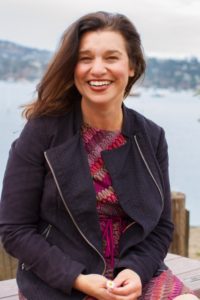 Publishing Talks began as a series of conversations with book industry professionals and others involved in media and technology, mostly talking about the future of publishing, books, and culture. As every media business continues to experience disruption and change, I’ve been talking with some of the people involved in our industry about how publishing might evolve as it is affected by technology and the larger context of culture and economics.
Publishing Talks began as a series of conversations with book industry professionals and others involved in media and technology, mostly talking about the future of publishing, books, and culture. As every media business continues to experience disruption and change, I’ve been talking with some of the people involved in our industry about how publishing might evolve as it is affected by technology and the larger context of culture and economics.
Rachel Lehmann-Haupt is best known for being an expert on the future of family life, career timing, and the influence of science and technology on fertility, pregnancy and family.
She is the author of In Her Own Sweet Time: Egg Freezing and the New Frontiers of Family. Her articles have been featured in a wide range of magazines and websites.
Rachel graduated with a degree in English literature from Kenyon College, and has a Masters in Journalism from the Graduate School of Journalism at the University of California, Berkeley. At UC Berkeley, she apprenticed under Clay Felker, the founder of New York Magazine. She has spoken on numerous panels at bookstores, hospitals and corporate events, and has delivered keynotes at universities.
Rachel’s newest venture, StoryMade Studios, a content development and editorial production studio was what introduced me to her work and caused me to want to talk to her for this Publishing Talks podcast series.
Much like my own work with content creators, and similar to the way movie studios work, Rachel builds teams that include writers, designers, developers, and video producers, and then manages the creation and editing of all the elements of a digital media story. StoryMade Studios focuses on health, parenting, advanced reproductive technology, neuroscience, women, sustainability, and food.
In recent years, Rachel has been a senior content strategist and strategic advisor for a number of technology start-ups, media properties, and non-profits including TED Books, The Dwell Store, Wired Magazine, BabyCenter.com, The Women 2.0 Conference, Code for America, Bridge Housing, Shebooks, and Dr. Dean Ornish/Healthways.
It was a pleasure to spend some time with her for a lengthy and wide ranging conversation when she was recently in New York City for a visit. I wanted to talk to her about her work as a writer and as a facilitator of book and other content projects, but in particular, I thought it would be really interesting to talk to Rachel about what it was like to have grown up as the child of two writers in the hothouse environment of New York City literary culture and how it influenced her own professional and personal life.
Thank you Rachel for a great conversation!
You can buy her book from RJ Julia here.
Visit Rachel’s own website here. Read about her book,In Her Own Sweet Time. 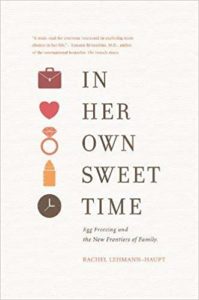
And about Story Made Studio here.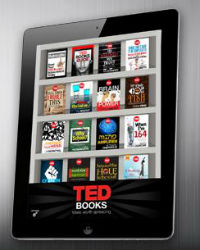
Podcast: Play in new window | Download
Thom Hartmann: The Hidden History of the Supreme Court and the Betrayal of America
October 22, 2019 by David
Filed under Non-Fiction, WritersCast
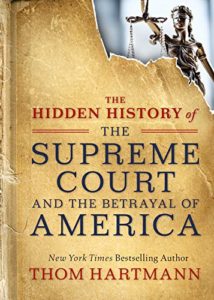 The Hidden History of the Supreme Court and the Betrayal of America – Thom Hartmann – ISBN 9781523085941 – Berrett-Koehler Publishers – Paperback – 192 pages – $15.00 – October 1, 2019 – ebook versions available at lower prices
The Hidden History of the Supreme Court and the Betrayal of America – Thom Hartmann – ISBN 9781523085941 – Berrett-Koehler Publishers – Paperback – 192 pages – $15.00 – October 1, 2019 – ebook versions available at lower prices
“Hartmann delivers a full-throated indictment of the U.S. Supreme Court in this punchy polemic.” —Publishers Weekly
This is a really important (and very short) book – so you have no excuse not to read it – no matter how busy you are.
Thom Hartmann has been a popular progressive radio host for years. In this book, he carefully and succinctly explains how the Supreme Court has gone far beyond its actual Constitutionally derived powers and provides some cogent guidance on how we can change it.
In the beginning, and until 1803, the Supreme Court was simply viewed as the final court of appeals in the judicial system, the branch of government with the least power of the three set forth in the Constitution. So we have to find out how did the concept of judicial review start, and as Hartmann points out, it began with the battle between the Federalists and Anti-Federalists, with the now well-known case known as Marbury v. Madison.
It is Hartmann’s view, and he argues persuasively, that it is not the role of the Supreme Court to decide what the law is, but rather the duty of the people through the legislative branch. He summarizes the history of the Supreme Court, giving some important examples of cases where the Supreme Court appears to have overstepped its constitutional authority.
So much of our history and beliefs about this country are mystified by a sort of glorification of a romanticized and suspect view of the Constitution and the powers of our branches of government. The Supreme Court today reflects the concerted effort of a small segment of society to control and reduce democratic principles and practices that would harm their interests. Hartmann’s book is an essential and very handy guide for anyone who would like to explore what we can do to rein in the power of the courts and increase democracy in our country. If you read Nancy McLean’s Democracy Unchained, as I hope you have, or if you are simply interested in both protecting and expanding democracy in our country, then reading this book is essential.
Buy the book from RJ Julia bookstore here.
Thom Hartmann is a progressive syndicated talk show host whose shows are available in over a half-billion homes worldwide. He’s the New York Times bestselling, 4-times Project Censored Award-winning author of 24 books in print. His radio show is syndicated on for-profit FM and AM radio stations nationally, on non-profit and community stations nationwide by Pacifica, across the entire North American continent on SiriusXM Satellite radio, on cable systems nationwide by Cable Radio Network (CRN), via subscription audio podcasts, worldwide through the US Armed Forces Network, and through the Thom Hartmann iOS and Android apps. Visit Thom’s own website to learn more about his work and many useful books. 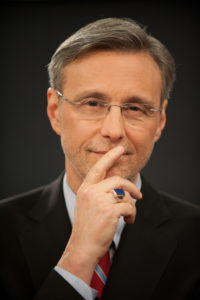
Podcast: Play in new window | Download

